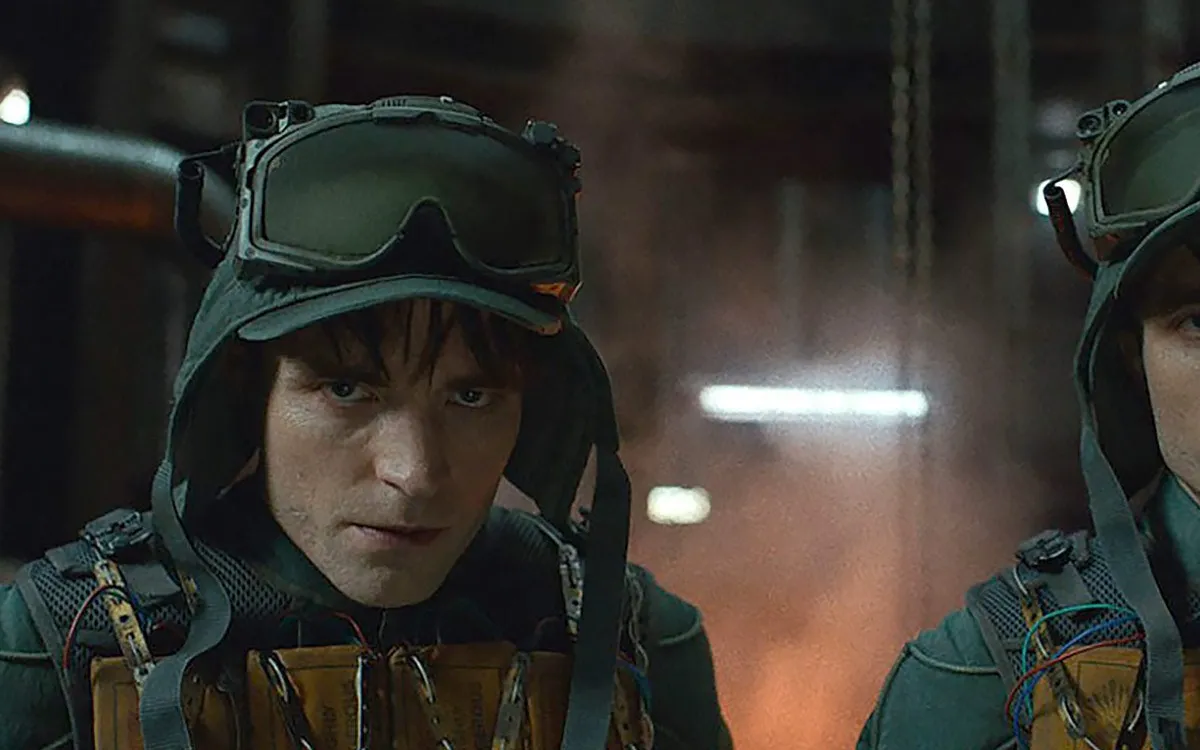
Mickey 17, the highly anticipated follow-up film from acclaimed writer-director Bong Joon Ho, arrives at a culturally relevant time, presenting an allegorical narrative that mirrors our reality. Originally scheduled for release in March 2024, this film offers a darkly comedic vision of a planetary labor colony dominated by an authoritarian billionaire who hosts a glitzy nightly TV show. Instead of serving as a mere cautionary tale, the film starkly reflects the world we currently inhabit.
Adapted from the graphic novel Mickey7 by Edward Ashton, Mickey 17 is set in the year 2054 on the frozen planet of Niflheim. The story opens with Mickey, portrayed by Robert Pattinson, lying helplessly in an ice cave, contemplating his imminent death. Suddenly, Timo, played by Steven Yeun, rappels into the cave, only to abandon Mickey with a promise that death isn't final; he can be "printed out" again tomorrow.
Flashbacks reveal that four years prior, Mickey and Timo fled Earth after their macaron shop failed, leaving them in debt to a sadistic loan shark. Upon joining the off-world colony, Mickey unwittingly became an Expendable, a worker who can be regenerated with his memories after each death, thanks to a biotechnology called “human printing.” This sets the stage for Mickey's role as the colony's sole Expendable, risking his life for the colony’s progress and profit.
The film introduces Kenneth Marshall, the colony’s despotic ruler, played by Mark Ruffalo. Marshall's character embodies the intersection of CEO, cult leader, and celebrity, living a life of luxury while the rest of the colony survives on unappetizing slop. When Mickey 17 escapes the ice cave and returns to his barracks, he discovers that he has an identical counterpart, Mickey 18, who has also been printed under the assumption that Mickey 17 was dead.
This scenario raises profound questions about personal identity, as both Mickeys must navigate their existence in a society that views them as less than human. Their differing personalities—Mickey 17 as an anxious people-pleaser and Mickey 18 as a rebellious alpha male—create a compelling dynamic that Pattinson excels in portraying.
The film's tension escalates as the two Mickeys attempt to share their burdens while also grappling with their feelings for Nasha, a colony security guard played by Naomi Ackie. As they confront their shared existence and the harsh realities of life on Niflheim, the narrative unfolds with dark humor and biting satire, reminiscent of Bong's earlier work, Snowpiercer.
As the colony faces a new threat from indigenous creatures resembling giant tardigrades, the film transitions into a thrilling climax that combines epic action with thoughtful commentary. The visual design and humor, including some gross-out moments, keep the audience engaged, even as the narrative reveals some unresolved threads and a somewhat rushed conclusion.
Ultimately, Mickey 17 serves as a savage critique of 21st-century capitalism, portraying a world where extraction and exploitation are rampant. Despite the film's often brutal depiction of its dystopian setting, Bong's humanism shines through, emphasizing the importance of every life, every death, and the need for a society that nurtures rather than discards.
The film culminates in a poignant message: Even in a world where death is a mere inconvenience, the quest for a meaningful life endures. The conclusion offers a glimmer of hope, suggesting that even an individual who has faced repeated horrors can forge a new path, rich with potential and authenticity.
Mickey 17 is not just a film; it is a reflection on our current societal structures, urging viewers to reconsider the value of life, identity, and the possibilities for change in a world that often prioritizes profit over humanity.